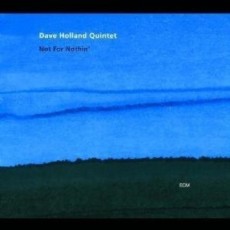
Daily Dose Of Jazz…
Dave Holland was born on October 1, 1946 in Wolverhampton, England and taught himself to play stringed instruments, beginning at four on the ukelele, then graduating to guitar and later bass guitar. He quit school at the age of 15 to pursue his profession in a top 40 band, but soon gravitated to jazz. After seeing an issue of Down Beat magazine where Ray Brow had won the critics’ poll for best bass player, he went to a record store, and bought a couple of LPs featuring Brown backing pianist Oscar Peterson and also two Leroy Vinnegar albums. He was also drawn to Charles Mingus and Jimmy Garrison.
A move to London in 1964 saw Dave played acoustic bass in small venues and studying with James Edward Merrett, principal bassist of the Philharmonia Orchestra, who taught him to sight read and then recommended he apply to the Guildhall School of Music and Drama. HoBy age 20, he was keeping a busy schedule in school, studios and Ronnie Scott’s Jazz Club. There he played in bands that supported such touring American jazz saxophonists as Coleman Hawkins, Ben Webster and Joe Henderson as well as John McLaughlin, Evan Parker, John Surman, Chris McGregor, John Stevens and Kenny Wheeler.
In 1968, Miles Davis and Philly Joe Jones heard him at Ronnie Scott’s Jazz Club, playing in a combo that opened for the Bill Evans Trio. Jones told Holland that Davis wanted him to join his band, replacing Ron Carter. Two weeks later he was given three days’ notice to fly to New York for an engagement at Count Basie’s nightclub and his two years with Davis began. His first recordings with Davis were in September 1968, and he appears on half of the album Filles de Kilimanjaro with Chick Corea, Wayne Shorter and Tony Williams. He also appeared on the albums In A Silent Way and Bitches Brew that led to his playing more electric bass with a wah-wah pedal as Davis’ music evolved into more electronic and amp-based.
Post Davis, Holland briefly joined the avant-garde jazz group Circle with Chick Corea, Barry Altshul and Anthony Braxton and recorded a few albums. He would go on to work as a leader and as a sideman with many other jazz artists in the 1970s recording and performing with Sam Rivers, Airto Moreira, Steve Grossman, Keith Jarrett Jack DeJohnette, Gary Bartz, Stan Getz, John Abercrombie and Bonnie Raitt. During the 80’s he worked with his first quintet featuring of Steve Coleman, Kenny Wheeler, Julian Priester or Robin Eubanks; formed a trio with DeJohnette and Coleman, and a quartet with Coleman, Kevin Eubanks and Marvin “Smitty” Smith.
From the 1990s onward Holland renewed an affiliation with Joe Henderson to record So Near, So Far, Porgy & Bess and Joe Henderson Big Band. He reunited with Betty Carter for the Feed The Fire recording, Herbie Hancock’s recordings of The New Standard and the Grammy Album of the Year session, River: The Joni Letters.
Dave continued to create new groups, new music and new recordings winning Best Large Ensemble Album Grammys for his work; he has won Down Beat’s Critics Poll for Musician of the Year, Big Band of the Year, and Acoustic Bassist of the Year, the Jazz Journalists’ Association also honored him as Musician and Acoustic Bassist of the Year; and has received the Miles Davis Award at the Montreal Jazz Festival, among numerous other honors and doctorates from Berklee College of Music, New England Conservatory and the Birmingham Conservatory in England..
As an educator, he has served as the artistic director of the Banff Summer Jazz Workshop, has tught workshops and master classes worldwide at universities and music schools, and is President of the UK-based National Youth Jazz Collective. Double bassist, composer and bandleader Dave Holland continues to perform, record and tour.
More Posts: bass


